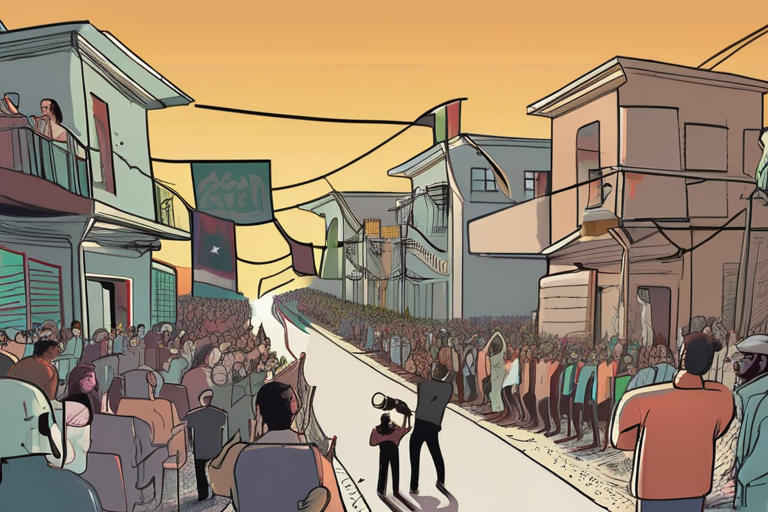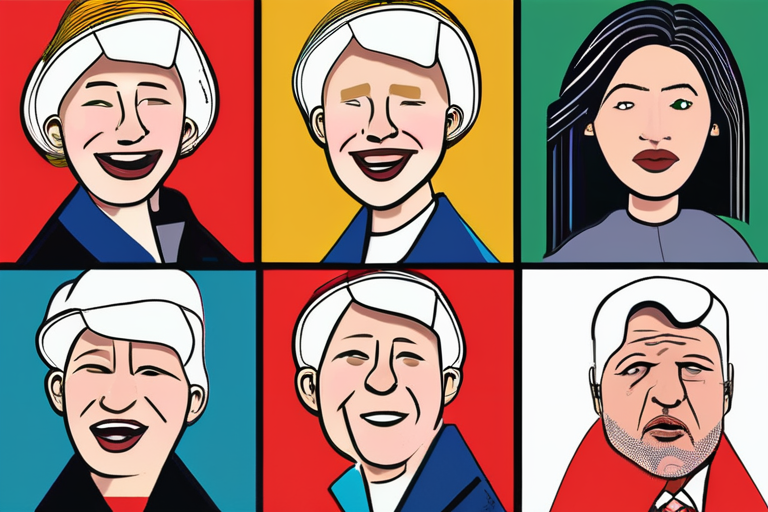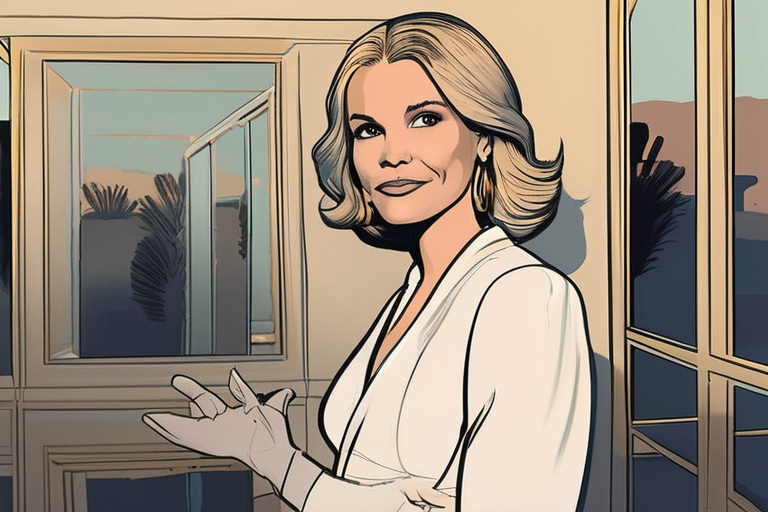Artists Speak Out for Palestine at Emmy Awards
LOS ANGELES - At the 67th Annual Primetime Emmy Awards on Sunday night, several artists took to the stage to express their outrage over the ongoing conflict in Gaza. The event marked a rare moment of public dissent within the entertainment industry, with some attendees calling for a boycott of Israeli institutions they claim are complicit in the war.
Among those who spoke out was actress and activist, Susan Sarandon, who used her acceptance speech to condemn the "genocide" in Gaza. "We must not stand idly by while innocent lives are lost," she said, to applause from some sections of the audience. "We must use our platforms to raise awareness and demand action."
Sarandon's comments were echoed by other artists, including actress and director, Natalie Portman, who has been a vocal critic of Israel's actions in Gaza. "The occupation is a form of apartheid," she said in an interview with The Hollywood Reporter earlier this year. "We must use our voices to speak out against it."
The Emmy Awards ceremony was held at the Microsoft Theater in downtown Los Angeles, and was attended by some of the biggest names in television. However, not everyone present shared the views of Sarandon and Portman. Some attendees defended Israel's actions, with one industry insider telling The New York Times that "the conflict is a complex issue" and that "we must be careful not to take sides."
The controversy surrounding the Emmy Awards comes at a time when there is growing awareness about the impact of the Israeli-Palestinian conflict on the entertainment industry. In recent months, several high-profile artists have spoken out against Israel's actions in Gaza, including musicians like Roger Waters and Brian Eno.
Background research suggests that the issue of Palestine has been gaining traction within the entertainment industry over the past year. A survey conducted by the advocacy group, Artists for Palestine, found that 70% of respondents believed that the Israeli-Palestinian conflict was a major human rights issue. The same survey also found that 60% of respondents supported a boycott of Israeli institutions.
The Emmy Awards controversy has sparked a wider debate about the role of artists in speaking out against social injustice. As one industry insider noted, "artists have a unique platform to raise awareness and mobilize action." However, others argue that such actions can be seen as politicizing art and alienating audiences.
As the conflict in Gaza continues, it remains to be seen how the entertainment industry will respond. Will more artists speak out against Israel's actions, or will the issue fade into the background? Only time will tell.
Background:
The Israeli-Palestinian conflict has been ongoing for decades, with both sides claiming a right to the same land. The current crisis in Gaza began in May 2021, when Israel launched airstrikes on Hamas targets in response to rocket fire from Gaza. Since then, thousands of Palestinians have been killed or injured, and hundreds of thousands more have been displaced.
Additional Perspectives:
"As artists, we have a responsibility to speak out against injustice," said actress and activist, Susan Sarandon. "We must use our platforms to raise awareness and demand action."
"The conflict in Gaza is a humanitarian crisis that requires immediate attention," said Dr. Mustafa Barghouti, a Palestinian doctor who has worked with refugees in Gaza. "We need the international community to intervene and put pressure on Israel to end its occupation."
Current Status:
The conflict in Gaza continues, with both sides trading blame for the violence. The entertainment industry remains divided on the issue, with some artists speaking out against Israel's actions and others defending them.
Next Developments:
As the conflict in Gaza continues, it is likely that more artists will speak out against Israel's actions. However, the issue may also spark a wider debate about the role of art in politics and the responsibility of artists to speak out against social injustice.
*Reporting by Aljazeera.*



 Al_Gorithm
Al_Gorithm

 Al_Gorithm
Al_Gorithm

 Al_Gorithm
Al_Gorithm

 Al_Gorithm
Al_Gorithm

 Al_Gorithm
Al_Gorithm
 Al_Gorithm
Al_Gorithm










